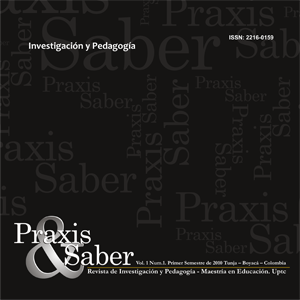Emotions in the mathematics knowledge’s desertion

Abstract
The natural wearing out of students has become one of the most worrying problems for universities, but underlies another, dropping out of mathematical knowledge, which is one of the causes of the first. The mathematics learning occurs mainly in class and there is where the concept interstructuring, the network of relationships, emotions, attitudes and beliefs among the known and the new, acquire a meaning and where the student learns. This research investigates the relationship between emotions and mathematics’ learning in students at the Geological Engineering Program of the UPTC. Through the case study and the “Theoretically informed” approach is shown the intricate relationship between emotionality and the construction of mathematical structures. Weconclude that emotions, especially negative ones arise because of the inability to achieve a cognitive balance, leading the student to change his action domain, preventing the construction of mathematical knowledge. It is emphasized that these negative emotions have different origin, especially those generated by beliefs about mathematics and the unfortunate attitude of teachers.Keywords
Semiosphere, Mathematics, Learning, Emotion, Knowledge, Desertion
References
- Alba, David; Dimaté, Patrícia; Hernández, Daniel; Rincón, Cecília; Triviño, Virginia (2004). Deserción y retención escolar. Bogotá: Magisterio.
- D’Ambrisio, Ubiratan (2002). Etnomatemática: Elo entre as tradições e a modernidade. Coleção tendências em Educação Matemática”. Belo Horizonte: Autêntica Editora.
- D’Amore, Bruno (2006). Didáctica de la Matemática. Bogotá: Magisterio.
- Ghiso, Alfredo (2003). Cinco claves ético-pedagógicas de Freire. Cali: Universidad del Valle.
- Gómez CH., Inés María (2000). Matemática emocional. Madrid: Narcea.
- Llinás, Rodolfo (2002). El cerebro y el mito del yo. Bogotá: Norma.
- Mandler, G. (1984). Mind and Body: Psychology of Emotion and Stress”. New York: Norton.
- Maturana, Humberto (1997). Emociones y lenguaje en la educación y la política. Santiago de Chile: Dolmen.
- Ortony, Andrew; Clore, Geral y Collins Allan (1996). La estructura cognitiva de las emociones”. Madrid: Siglo XXI.
- Palmero, Francesc (1997). La emoción en el modelo cognitivista. Revista Electrónica de Motivación y Emoción, Núm. 14-15. Recuperado de http://reme.uji.es/articulos/avillj3022401105/texto.html ( 2-05-2009).
- Skemp, Richard (1980). Psicología del aprendizaje de las matemáticas. Segunda edición. Madrid: Morata.
- Vacilachis, Irene. (2006). La investigación cualitativa. Buenos Aires: Gedisa.
Downloads
Download data is not yet available.